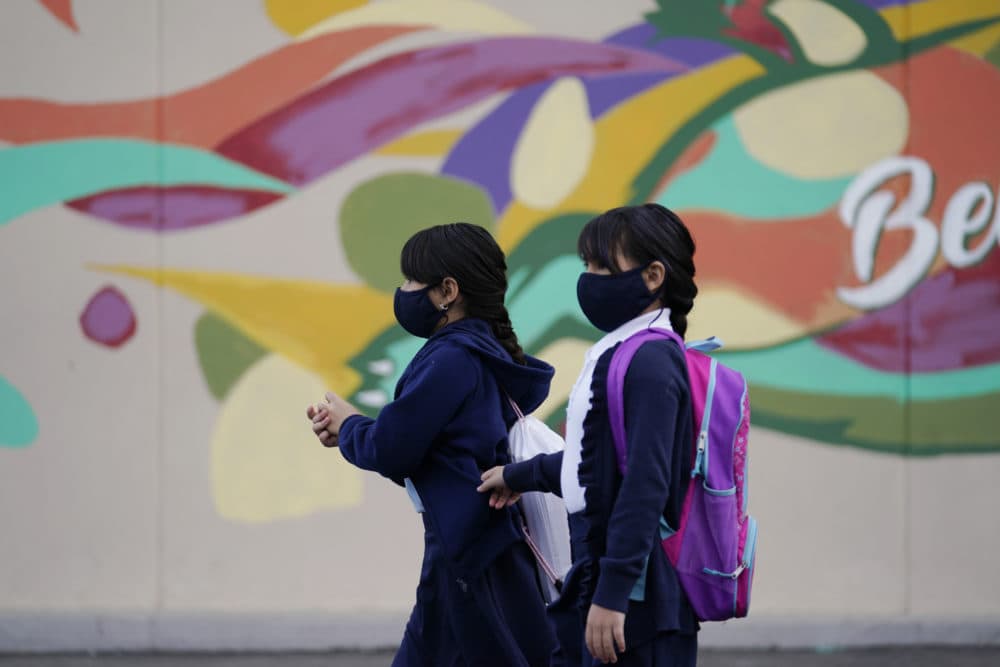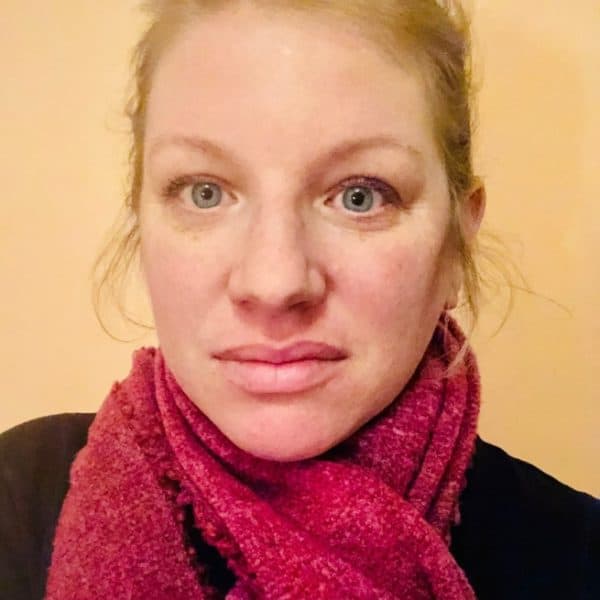Advertisement
Commentary
My students deserve better than homelessness

One December afternoon, Yasmairy lingered in my classroom after dismissal. Her brown hands shook as she fiddled with her braids.
“Qué pasó?” I asked.
Tears welled up in her eyes, and she covered her face with the sleeve of her sweatshirt. I wondered if she was missing her family in the Dominican Republic. My new immigrant students are sometimes overwhelmed because they miss relatives in their home countries.
“I live with my mother in her cousin’s house. Her cousin is the owner, and she’s having a baby. She said we can’t live there anymore when the baby comes.”
“Where will you live then?” I asked.
“En la calle.” In the street.
Yasmairy, not her real name, wasn't my only student whose family struggled with housing. The previous week, I received a phone call from the father of another student, a sixth-grader who'd just arrived and whose family of four was living in a single bedroom in a rooming house. More than 4,000 Boston students are homeless.
'Where will you live then?' I asked. 'En la calle.' In the street.
There were also two students, both new arrivals from the Dominican Republic, who started the year in my classroom while living in double-ups with family members while their parents sought out housing in the city. The boy ended up in Brockton, the girl in New Bedford, both transferring to new schools only weeks after they had started school in Boston.
The teachers in the classroom across the hall from mine, who work in a specialized program for new immigrants with limited or interrupted schooling in their home countries, regularly confront students’ housing needs. Last year, two boys in their class had been living with their younger brother and parents in the cellar of another family’s home. When winter hit, their parents brought the children to a hospital emergency room for shelter.
When I was 13, my goals concerned only the immediate future: getting a boyfriend, preferably one with a car, and maintaining good grades to keep my parents off my back. I never worried about basic needs. But Yasmairy had already mapped out her life plan. I was upset to learn that this determined student worried about having a place to live.
Advertisement
“No, you won’t be in the street,” I reassured her.
But as soon as I said this, doubt crept into my head. What could I really do? I'm an English teacher, not a housing expert. I considered inviting Yasmairy's family to live with me, but that wasn't a long-term solution: Our two-bedroom condo already houses my family of five.
When winter hit, their parents brought the children to a hospital emergency room for shelter.
I handed Yasmairy one of the pop-it fidgets that I keep in a basket on my desk for students to use as stress relievers. While she pressed her fingers into the silicone bubbles, I composed an e-mail to our school’s family coordinator, who would then forward it to his contact at the city’s Office of Housing Stability. I typed my cell phone number in Yasmairy’s WhatsApp, telling her to text me if she needed help.
Yasmairy’s situation is out of my hands, but it’s still on my mind. I keep asking myself how it is possible, with all the new luxury condo buildings popping up all over town, that there’s not enough housing for my students?
The Boston Foundation’s 2021 Housing Report Card attributes housing insecurity to both inadequate housing production as well as gaps between wages and housing costs. Even before the pandemic, Massachusetts had a housing affordability crisis from a combination of stagnating pay for low-end jobs and accelerating rents. Black and Latinx families were already spending a higher share of their income on housing costs than both whites and Asians. For every $1 in non-cash liquid assets — stocks, bonds, etc. — that a white Boston family owns, Dominicans have less than a penny.
For every $1 in non-cash liquid assets ... that a white Boston family owns, Dominicans have less than a penny.
During the pandemic, Black and Latinx workers shouldered the greatest burdens from unemployment, with employment claims for these groups peaking at around 21% compared to 12% for whites and 15% for Asians. Additionally, evictions between January of 2020 and March of 2021 affected my school’s Dorchester neighborhood as well as Roxbury, Mattapan and Hyde Park, far more heavily than other parts of Boston. The neighborhood surrounding my school faced 187.4 evictions per 10,000 residents. By comparison, in Roslindale, where I live, there were 65 evictions per 10,000 residents.
Housing insecurity, along with the other effects of poverty that many of my students experience, has a tremendous impact as they learn English and prepare for college and careers. I already must work against the fact that Latinx students have the highest dropout rate of all racial groups in Boston, and now I must contend with the fact that homeless students achieve English proficiency at much lower rates than their peers with stable housing.
I worry that despite the improvements I’ve seen in my students’ language and academic skills, their effort and determination will not be enough to carry them through high school graduation. And, as for my work as a teacher, dealing with the inequities my students face distracts me from engaging my students in learning a new language while adjusting to a new land.
I want to spend my time helping Yasmairy with her schoolwork, not her housing crisis, but I know that my students cannot engage in higher-order thinking as fully when they lack stability and security. I believe that my students deserve better than homelessness, and I wonder how Boston can address this so I can get back to the work I love: supporting students in achieving their American dreams.
